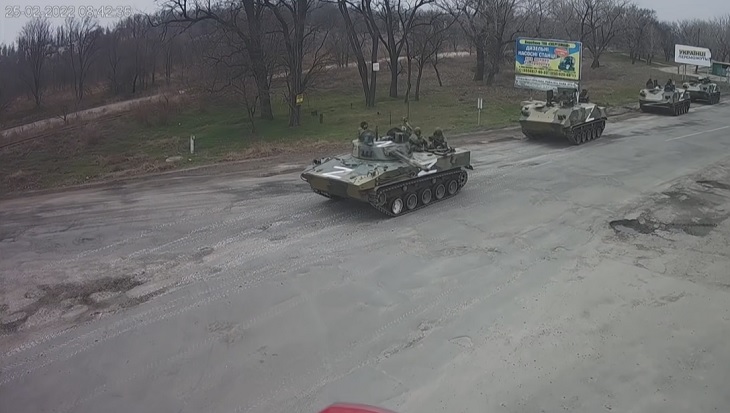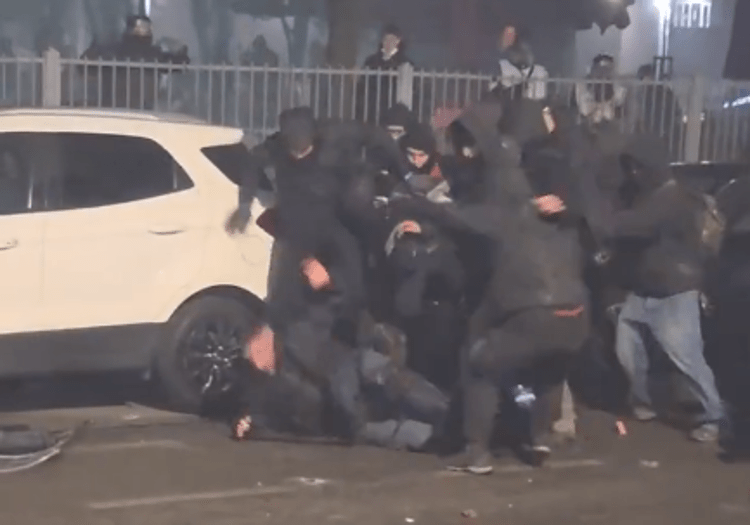
Third anniversary of the war in Ukraine: peace still far away
Europe divided, Trump negotiates with Moscow as China and Russia draw closer
24 February is not a date like any other: it marks the third anniversary of the Russian invasion of Ukraine, a war that has brought death and destruction and continues to weigh not only on Kiev and Moscow, but also on Europe and the entire global geopolitical balance. The President of the EU Commission, Ursula von der Leyen, during the summit with Western leaders in Kiev, reiterated the position of the European institutions: Ukraine is an integral part of Europe and its fate is closely linked to that of the Union. The Ukrainian President, Volodymyr Zelensky, also emphasised the importance of a just peace, stating: ‘This must be the year for the beginning of a true and lasting peace. Putin will not give us peace in exchange for something, we must win it with strength, wisdom and unity’.
Putin’s strategy: victory on the ground to negotiate with the US
While Kiev continues to push for a resolution of the conflict, Moscow seems to be moving in a completely different direction. Vladimir Putin’s strategy aims to achieve a military victory on the ground and then negotiate directly with the US, bypassing Ukraine and Europe. Kremlin spokesman Dmitry Peskov said that the Europeans continue to pursue a policy of sanctions, moving away from the possibility of a deal. ‘We are negotiating now with the Americans, not with Europe,’ he stressed, highlighting the Russian goal of shifting the focus of negotiations globally.
The US change of course under Trump
American policy under the presidency of Donald Trump has taken a radically different direction from the administration of Joe Biden. Trump has reversed the US approach, proposing a resolution that puts the actions of Ukraine and Russia on the same level. On the third anniversary of the invasion, the UN was divided: while Ukraine and the European Union pushed for their own resolution, the United States proposed its own, mourning ‘the tragic loss of life in the conflict between the Russian Federation and Ukraine’.
Europe’s opposition to US-Russian dialogue
Europe, however, does not want to accept that the fate of Ukraine will be decided without its involvement. Friedrich Merz, future German Chancellor, expressed concern about the negotiations between Washington and Moscow, calling the idea of a bilateral agreement unacceptable. The British Prime Minister, Keir Starmer, and the French President, Emmanuel Macron, also expressed their dissent, appealing to Trump not to pursue direct negotiations with Russia and promising European support for Ukraine’s security.
The rapprochement between Russia and China
Meanwhile, Moscow seeks to strengthen its alliance with Beijing. Presidents Xi Jinping and Vladimir Putin had a telephone conversation on the very occasion of the third anniversary of the invasion, during which China expressed support for Moscow’s ‘positive efforts’ to resolve the Ukrainian crisis. This dialogue highlights a new triangle of relations between Russia, the US and China, with potential economic and geopolitical repercussions. While Moscow and Beijing cooperate on the Ukrainian crisis, there is no shortage of tensions between the two powers, especially on the Taiwan issue and trade.
Europe’s internal divisions between sanctions and financing
Europe, for its part, continues to insist on sanctions against Russia, with Kaja Kallas announcing the 16th sanctions package, and work is already underway on the 17th. The UK also announced the largest sanctions package since the beginning of the war, hitting 107 individuals and entities linked to the Russian military effort, including the North Korean Defence Minister. However, Russian propaganda continues to reject the sanctions, with Maria Zakharova attacking the West and accusing Europe of weakening under the weight of these measures.
A Europe divided over funding for Ukraine
Despite its commitment to support Kiev, the European Union also faces internal divisions over military funding. Countries such as Hungary and Slovakia have declared their opposition to the new military aid plan for Ukraine, further complicating the European position. This internal stalemate risks further weakening European unity and the ability to act forcefully in the global context.
Photo: the first Russian tanks invade Ukraine, 24 February 2022
THE LATEST NEWS
(Source: © AndKronos)
-

 Primo Piano17 ore ago
Primo Piano17 ore agoGB, arrestato e poi rilasciato ex principe Andrea: accuse legate al caso Epstein
-

 Flash22 ore ago
Flash22 ore agoTentato rapimento in pista di pattinaggio a Scandicci, paura per un bambino
-

 News20 ore ago
News20 ore agoOmicidio a Scandicci: fermato uomo per la decapitazione di Silke Sauer
-

 International-News20 ore ago
International-News20 ore agoIran Protests: Radiographs Show Devastating Wounds



















